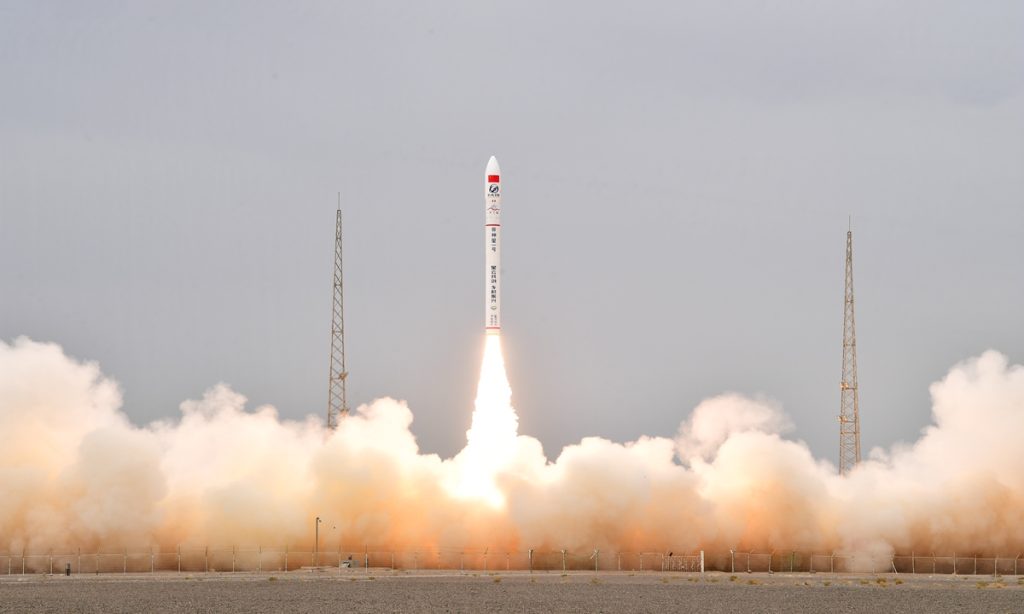Private Chinese rocket maker launches 8th successful flight mission, entering concentrated delivery phase

Private Chinese aerospace firm Galactic Energy launched its eighth Ceres 1 rocket on Friday, the latest effort by a private Chinese firm to expand its capabilities in rocket research and development (R&D) and launches.
It was the third launch within 35 days by Galactic Energy and the eighth successful flight for the rocket model.
The launch successfully sent the Jilin-1 Kuanfu 02A satellite, self-developed by Chang Guang Satellite Technology Corp, to its preset orbit.
Following the launch, it will further accelerate the networking process of the Jilin-1 satellite constellation, and expand the large-scale, high-resolution remote sensing information resources of Jilin-1, which can provide richer remote sensing data and product services for land and resources censuses, smart city, agriculture and forestry development and other fields.
Jilin-1 is China's first self-developed commercial remote sensing satellite system. The satellites are operated by Chang Guang Satellite Technology Corp based in Northeast China's Jilin Province, after which the satellite is named.
So far, the Ceres 1 rocket has served 15 commercial satellite clients, sending 29 satellites into orbit that offer support for Earth observation, meteorological monitoring, popular science education and others, according to a statement the company sent to the Global Times.
Having kicked off its high-density delivery and launch cycle for the second half of the year, Galactic Energy aims to complete one land-based launch and one sea-based launch in the near future, a PR representative from the firm told the Global Times.
A high-density launch is the path a rocket firm has to take for its products to mature from the lab to large-scale production.
Prior to Friday's launch, the Beijing-based start-up had accomplished seven consecutive launches after making its debut flight in November 2020 from the Jiuquan Satellite Launch Center in Northwest China.
Ceres 1 is a four-stage launch vehicle independently designed by Galactic Energy. Solid engines are used in the first, second and third stages, while advanced liquid upper stage is the fourth one.
The company is also conducting R&D into liquid rocket technology.
In June, it announced that the Pallas 1, a larger, reusable liquid-propellant rocket model, had completed the inter-stage separation test, verifying the correctness of the separation scheme.
Private firms, a rising force in propelling China's space industry, are ramping up efforts to foster capabilities to meet market demand. With consecutive successful launches, they are entering a new R&D cycle and accelerating the pace of shaping their commercialization loop, experts said.
"Private Chinese firms, especially those established as the first-generation launch start-ups in 2015, are now in the ascending period," Lan Tianyi, founder of Beijing-based Ultimate Blue Nebula Co, a space industry consultancy, told the Global Times Friday.
They have demonstrated robust innovation capabilities and potential over the past few years, and have become an important force in promoting China's commercial space sector, he noted.
The year 2023 is also anticipated to witness more milestone launch events in the commercial space sector compared with the past few years.
In July, LandSpace, another private rocket start-up, launched the world's first liquid oxygen, liquid methane carrier rocket from Jiuquan, a milestone move that has put China in the front of the global space race for methane-based rockets.